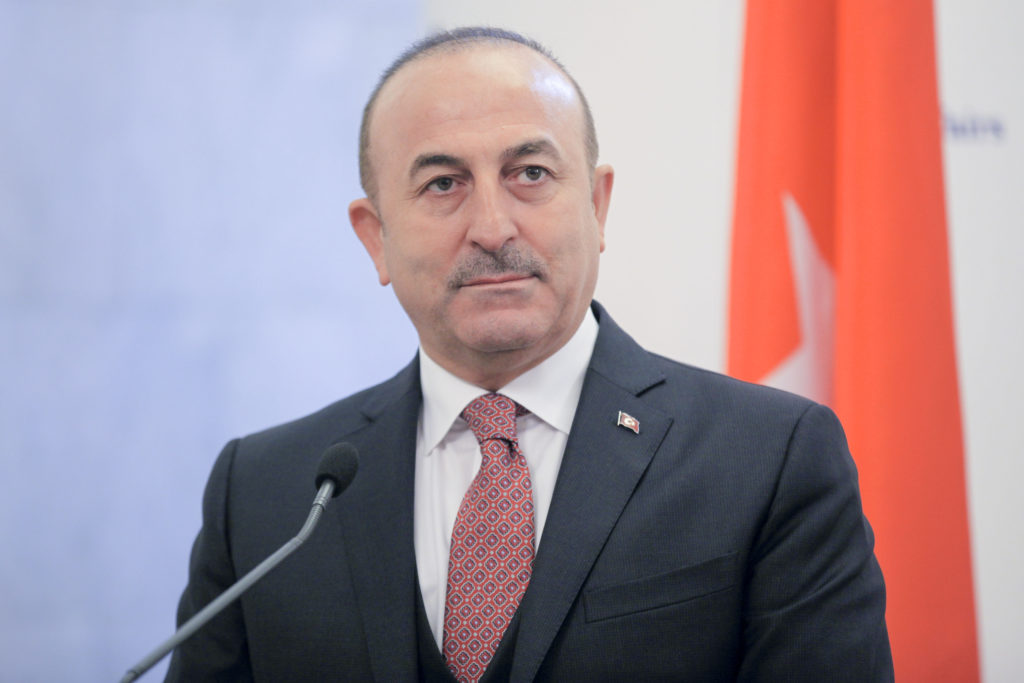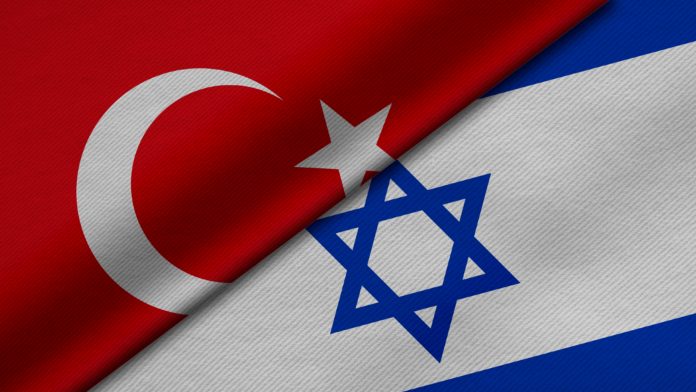Turkey and Israel have agreed to strengthen and normalise ties during a visit by the Turkish Foreign Minister visit to Israel.
The meeting is the first visit by a Turkish foreign minister to Israel in nearly 15 years.
“We agreed to bring new synergy to our bilateral relations in many fields and establish different mechanisms from now on,” Mevlut Cavusoglu told a joint news conference with his Israeli counterpart Yair Lapid in West Jerusalem on Wednesday.
Cavusoglu said Turkey-Israel trade volume surpassed $8 billion last year and the figures of this year’s first quarter are “very promising.” “We are determined to increase our trade volume and economic co-operation. It is mutually beneficial,” he said.
He added that Istanbul was the most popular city for Israeli tourists, saying: “So, we are hoping to receive more tourists in different parts of Turkey.”
Lapid said Israel and Turkey are launching a new framework to strengthen bilateral relations at various levels, including the economic front.
He said: “we agreed to relaunch our joint economic committee, and start working on a new civil aviation agreement between our two countries.”
Subscribe to our newsletter and stay updated on the latest news and updates from around the Muslim world!
He called the dialogue “fruitful and honest” to “initiate a new framework to improve our relations that will benefit not only us, but our children for years to come.”

Earlier in the day, Cavusoglu visited the Holocaust Remembrance Museum “Yad Vashem” in West Jerusalem, and laid a wreath in the museum hall.
He began his trip yesterday visiting Ramallah and met Palestinian Authority (PA) Chairman Mahmoud Abbas and Foreign Minister Riyad al-Maliki.
He sought to reassure the Palestinians that “our support for the Palestinian cause is completely independent from the course of our relations with Israel.”
In his meeting with al-Maliki, Turkey and the PA signed a series of agreements relating to economic cooperation.
In one of the agreements, Turkey agreed to fund the construction of an industrial zone. Other agreements related to agriculture, education and trade.
Following the meetings, Cavusoglu was asked by reporters to comment on the recent clashes between Israeli forces and Palestinians. He said the clashes had “upset Turkey,” adding: “It is important for all Muslims that the sanctity and status of the Al-Aqsa is protected.”
Cavusoglu reiterated Turkey’s support for the two-state solution, and spoke out against unilateral measures.
One of the central agenda items for the Lapid-Cavusoglu meeting is the restoration of ambassadors in both the Turkish Embassy in Tel Aviv and the Israeli Embassy in Ankara.
Another issue on the agenda is the possibility of an Israeli-Turkish pipeline to export natural gas to Europe.
The process of improving Israeli-Turkish diplomatic relations began last year with a series of phone calls between Turkish President Recep Tayyip Erdogan and the then-newly elected Israeli President, Issac Herzog. That led to a visit by Herzog to Turkey earlier this year.
Israeli analysts have speculated that Turkey’s softening position towards Israel is part of their efforts to restore ties with the U.S. Cavusoglu visited the U.S. last week and met with Secretary of State Antony Blinken, where they both committed to “deepen bilateral cooperation.”
Historically, Israel and Turkey have had close relations. Turkey was the first Muslim country to recognise Israel in 1949.
Through to the early 2000s Israel and Turkey enjoyed strong security and intelligence cooperation, including Israel supplying them with advanced UAVs.
From 2010 to 2021, trade between the two countries grew from $3.4bn per year to $8.1bn per year. Last year, approximately $6.1bn worth of products were sold to Israel, while $1.9bn worth of products were purchased from the country.






















